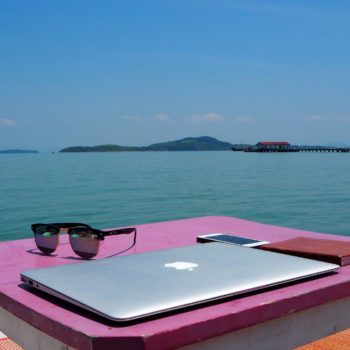How the Ad Industry Can Better Leverage the Rise of the Digital Nomad
by on 20th Jun 2017 in News

People who work remotely may sound like they are living the dream, and maybe they are. But they are professional, innovative, flexible, and could very well be your best employees. Writing exclusively for ExchangeWire, Dave Williams (pictured below), co-founder and chairman, NomadX, explains how 'digital nomads' are a growing pool of talent that the ad industry shouldn’t ignore, and could do well to support.
For most of us, going to work means waking up in the morning and going to the office. In the advertising space, this might mean starting at a later hour, but it also means long hours, crafting pitches, responding to client needs, and everything else that comes up in the course of business.
Lately though, smartphone technology and global connectivity means that workers are no longer tethered to a single office. 'Work' no longer means both the tasks and the place – it’s simply what you do. And while this has triggered a rise in remote access, working from home, and co-working spaces, it has also held appeal to those who wander off the beaten path and define their 'office' as wherever they can get a wi-fi signal for the day, whether they’re in San Francisco or Berlin, Lisbon or Tokyo.
These 'Digital Nomads' are not a single entity, but a growing legion of workers no longer constrained by the traditional definition of work – they are entrepreneurs, freelancers, remote employees and those with 'unlimited vacation'. This summer, millions of these workers will travel the globe, writing unique chapters in their lives while they continue to maintain their careers by working remotely (perhaps you’re one of them, or want to be).
Unsurprisingly, the industry has adjusted slowly to this new paradigm, because it lacks the training and experience to maximise return from these itinerant workers. But the ad industry, from creative agencies to ad-tech companies, has always prided itself on innovative thinking, flexible work, and the digital nature of the business. Those characteristics put it in a unique position to take advantage of this paradigm shift.
They’re professionals
The first thing to do is understand that not all digital nomads are backpackers. They’re not all on the fringe stringing together entry-level freelance assignments so they can sit on the beach with a cold one; nor do they all meet the stereotype of the recent college grad on a journey to 'find themselves' on a trek across Europe or Asia. The emerging digital nomad profile is a professional who is living and working remotely, exploring the world for extended periods of time. They are expert creatives, search marketers, media buyers, analysts, and strategists all looking for engaging work experiences that can be done remotely. As such, agencies should look to tap into this diverse global resource.
They’re innovators

Dave Williams, Co-Founder & Chairman, NomadX
While digital nomads may not match the definition of 'work', as many people define it, they are not eschewing responsibility, but are instead making use of new technology capabilities and experimenting with the future of work. They are adventurers, explorers, and modern day pilgrims. If you’re a creative agency or ad-tech company that considers itself cutting edge, this new kind of work-life experimentation and open-mindedness should be considered a benefit, rather than a drawback. Digital nomads migrate from city to city working in cafes and, increasingly, international co-working programmes, all while networking with other likeminded locals. This communal atmosphere means that workers are exposed to new perspectives and new experiences – often times, they’ll sit down for dinner with someone from a completely different industry, culture, and nationality, which may have a dramatic effect on their latest idea. This is the kind of inspiration that agencies always talk about, but is so difficult to create in an office environment. Looking for workers who get off the beaten path and engage in an exchange of ideas across cultures is bound to lead to inspiring work.
They demand flexibility
Truthfully, it’s difficult to summarise digital nomads as having one single common need; but if there’s one thing all digital nomads care about, its flexibility, given their different time zones and work-life balance. For companies interested in hiring and working with them, it’s important to be flexible and respect their difference in time zone as you would for clients or other coworkers.
Retain your best employees
Coming at this from an employee-retention angle, advertising companies can experiment with their own work-abroad programmes as an incentive for loyal employees. The millennial generation, and older employees, are demanding the opportunity to venture outside the office through more flexible work programmes. More innovative companies are choosing to send groups of their employees to work and travel abroad, with the plan that they’ll return rejuvenated with fresh ideas and a new perspective on both life and work.
Companies such as RemoteOk and Remote.co specialise in sourcing qualified digital nomad job candidates, while others provide prearranged travel packages that make it easier for employees to get set up in a remote location. The future of work is changing rapidly, so the ad industry needs to retain an open mind, adapting to new concepts while encouraging experimentation.








Follow ExchangeWire